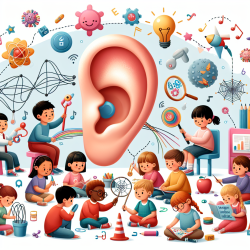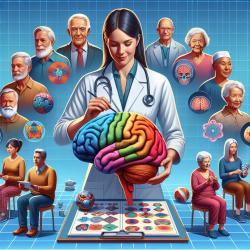Understanding Auditory Processing Disorder: Insights and Management
Auditory Processing Disorder (APD) is a condition that can significantly impact a child's ability to process sounds and understand speech, despite having normal hearing. At TinyEYE, we understand the challenges that APD presents in educational settings, and we aim to provide comprehensive support to help manage these difficulties effectively.
What is Auditory Processing Disorder (APD)?
APD affects how the brain interprets sounds. Children with APD may find it difficult to recognize sounds or understand speech, especially in noisy environments such as classrooms. This condition is often identified when children begin school, although some parents may notice symptoms earlier.
Causes and Symptoms of APD
Currently, the exact cause of APD is unknown. However, research suggests it may be an inherited condition, as some parents report similar experiences during their childhood. The symptoms of APD vary, but common indicators include:
- Frequently asking for repetitions
- Difficulty following spoken instructions, especially with multiple tasks
- Struggling to differentiate similar sounds
- Challenges in understanding and recalling the order of sounds and words
- Difficulty following conversations, particularly with background noise
- Easily distracted by background noise
- Reading and spelling difficulties
APD symptoms can be exacerbated if a child has additional conditions such as dyslexia or attention difficulties.
Diagnosis and Impact on School Progress
Diagnosing APD involves a series of hearing tests to rule out hearing loss and assess the child's ability to understand speech amid background noise. These tests are usually conducted at specialist centers and are not typically performed on children under seven years old.
While APD may require additional support in school, it does not generally impede a child's overall academic progress. Adjustments and support strategies can help mitigate the challenges associated with APD.
Treatment and Management Strategies
Although there is no cure for APD, several strategies can help manage the condition:
- Auditory training programs to enhance listening and concentration skills
- Minimizing background noise wherever possible
- Implementing school adjustments such as seating arrangements and using radio receivers
Many children with APD find that their condition improves naturally as they age.
Supporting Your Child at Home
Parents can support their children with APD by:
- Gaining the child's attention before speaking
- Speaking clearly and at a normal pace
- Reducing background noise
- Emphasizing key points in conversations
- Avoiding covering the mouth while speaking
For more information, please follow this link.










